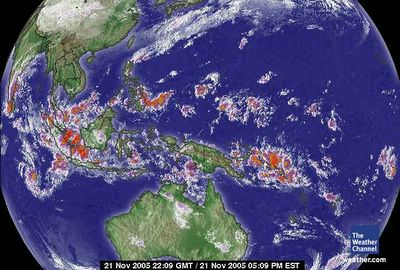
November 21, 2005. 2209 gmt.
West Pacific satellite.
New Zealand is in the southeast corner out of the frame.

This Blog is created to stress the importance of Peace as an environmental directive. “I never give them hell. I just tell the truth and they think it’s hell.” – Harry Truman (I receive no compensation from any entry on this blog.)





